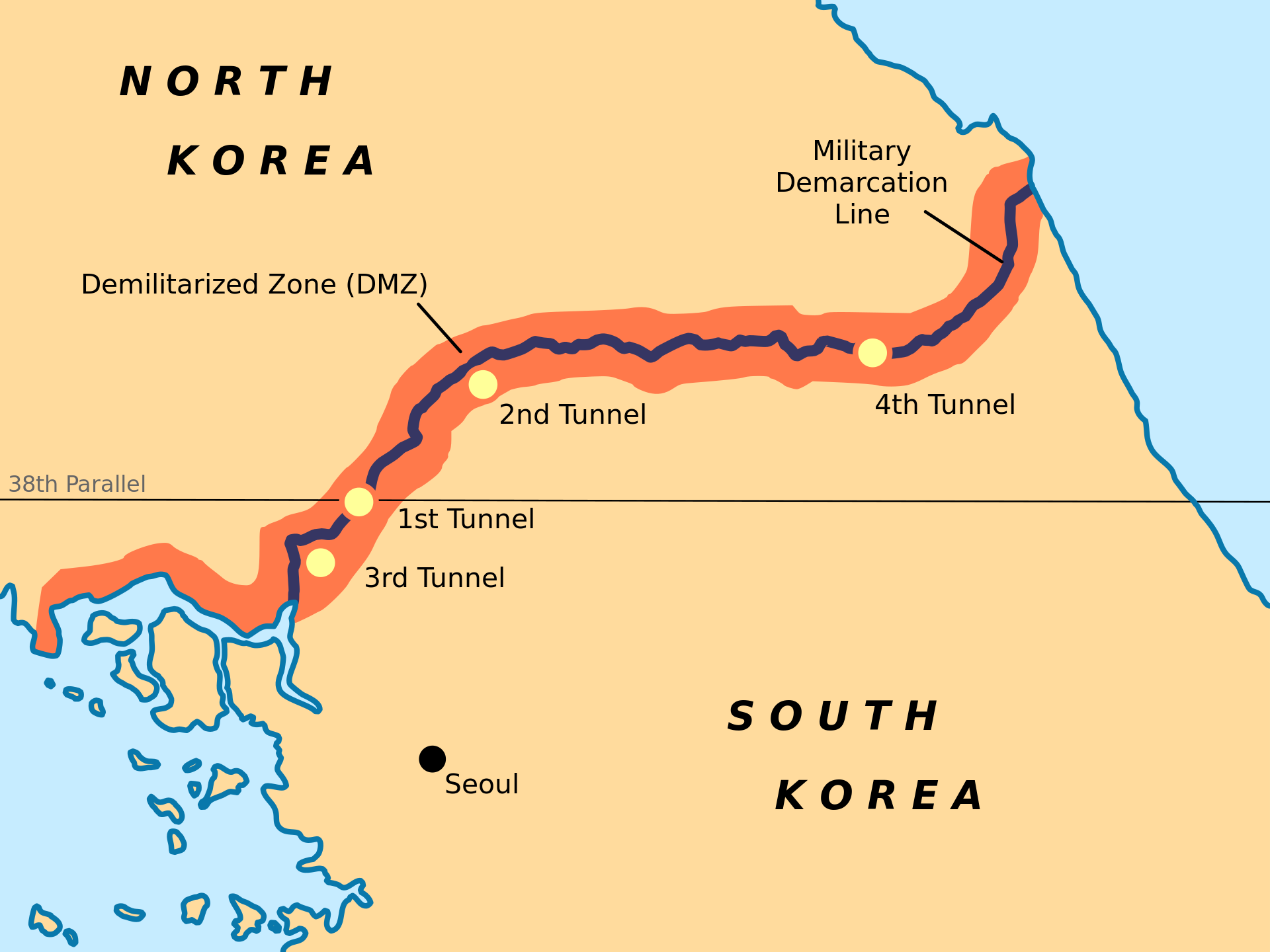The Korean Demilitarized Zone is a well-established demarcation line between the Republic of Korea (RoK) in the south and the Democratic People's Republic of Korea (DPRK) in the north. It is also known for being one of the most heavily mined places on earth, and a distinct place that the USA did exclude from their pledge to not use anti-personnel landmines.
Most of the DMZ is over a granite shelf, and in 1974, 1975, 1978 and 1990 the RoK discovered four tunnels that were mined from the DPRK side of the border. The DPRK claimed these branchless tunnels would have been for coal mining, but their construction and the fact that there is no coal in the area make that claim very weak.
However, let's ignore the political side and just look at the legal side: the DMZ stretches about 2 kilometers from the Military Demarcation Line into both Koreas' internationally accepted territories while both claim all of the Korean peninsula. All of the four tunnels started in the DPRK's soil and crossed the demarcation line, thus entering RoK Soil. The tunnels are approximately terminated at the dots in the following map:
Assuming the situation that the tunneling was not announced by the DPRK to the ROK, that there was no international contract or agreement about such tunneling, and that the tunneling was not in error, what is the international law on building a tunnel crossing the border?
